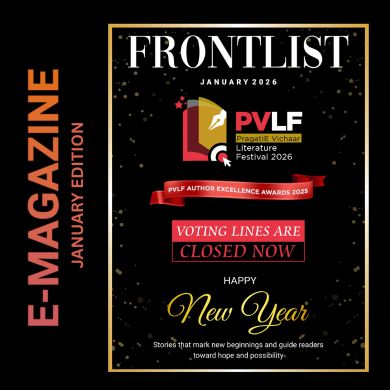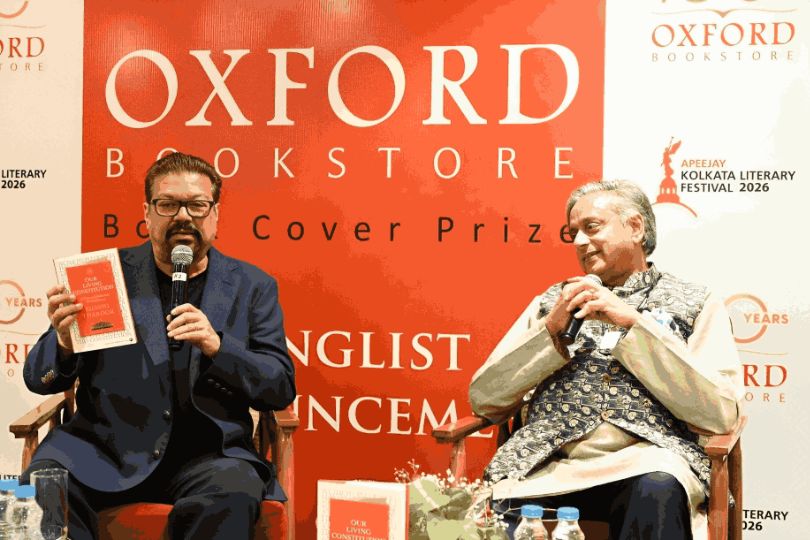Interview With Pranav Gupta, MD, Prints Publications and Secretary General, IRRO | World Book and Copyright Day
Digital publishing and online piracy have made it easier for individuals to copy and distribute copyrighted works without permission.on May 02, 2023
.jpg)
Pranav Gupta has conquered the feats of establishing his name in the Indian publishing sphere as the Managing Director of Prints Publications Private Limited. His drive for entrepreneurial success stems from the inter-generational legacy that precedes him and has helped him spearhead pioneering initiatives globally. Presently, with a fervour for taking the Indian publication to new heights, he serves as the elected Secretary-General for the Indian Reprographic Rights Organisation and the Joint Secretary for The Federation of Indian Publishers.
Pranav also holds the position of an elected Executive Committee Member of the International Publishers Association and has been recently appointed as the Chair of the Data & Statistics Committee.
Prints Publications, Advit Toys, BuyBooksIndia, Swets Information Services, and Aviraj Education Resources are the companies he represents. His well-rounded industry exposure and experience have made him a frequent event speaker, and his essays have appeared in various newspapers, journals, and publications.
Frontlist: Can you explain the basics of copyright law concerning the publishing industry?
Pranav: Copyright law protects original works of authorship, including literary, artistic, musical, and other creative works. In the publishing industry, copyright law is fundamental because it grants publishers the exclusive right to reproduce, distribute, and display their authors' works. This means that publishers can control how their books are sold, marketed, and distributed, and they can prevent others from using their content without permission.
Frontlist: How do digital publishing and online piracy affect copyright law, and what steps can publishers take to mitigate these issues?
Pranav: Digital publishing and online piracy have made it easier for individuals to copy and distribute copyrighted works without permission. However, publishers can take steps to mitigate these issues by using digital rights management (DRM) software to prevent unauthorized copying and distribution, monitoring online marketplaces for pirated copies of their works, and working with legal professionals to pursue legal action against those who infringe on their copyrights.
Frontlist: What is the role of copyright in fostering creativity and innovation in the publishing industry? How can copyright law strike a balance between protecting the rights of creators and promoting the free flow of ideas and information?
Pranav: Copyright is vital in fostering creativity and innovation in the publishing industry by providing authors and publishers with the incentives and protections they need to create and distribute their works. However, copyright law must balance protecting the rights of creators and promoting the free flow of ideas and information. For example, copyright law allows for fair use, enabling individuals to use copyrighted works for purposes such as criticism, commentary, and education without infringing on a copyright.
Frontlist: How do copyright laws apply to works created using artificial intelligence or machine learning? What legal considerations should publishers keep in mind when working with these technologies?
Pranav: Copyright law applies to works created using artificial intelligence or machine learning like in other jobs. However, there are some legal considerations that publishers should consider when working with these technologies. For example, it may need to be clarified who the copyright owner is when an AI system creates a work. In addition, there may be issues around copyright ownership and liability if the AI system is trained on copyrighted material.
Frontlist: How do copyright laws impact the relationship between authors and publishers, and what should both parties be aware of?
Pranav: Copyright laws impact the relationship between authors and publishers in several ways. Publishers typically require authors to assign the copyright in their works to the publisher in exchange for publication, which gives the publisher control over the use and distribution of the work. Authors should be aware of their rights under copyright law, such as the right to receive credit for their work and the right to receive royalties for its use. Likewise, publishers should be aware of their obligations under copyright law, such as providing authors with attribution and compensation for the benefit of their works.
Frontlist: What measures can India take to inform and educate users about the value of copyright and their rights and responsibilities?
Pranav: To inform and educate users about the value of copyright and their rights and responsibilities, India can develop educational campaigns, partner with schools and universities to incorporate copyright education into curricula, and provide resources and support for creators and copyright owners. Additionally, India can work to improve its legal framework for copyright, including strengthening enforcement mechanisms and increasing penalties for copyright infringement.



.jpg)






.jpg)

.jpg)
.jpg)
.jpg)
.jpg)

.jpg)

.jpg)








Sorry! No comment found for this post.